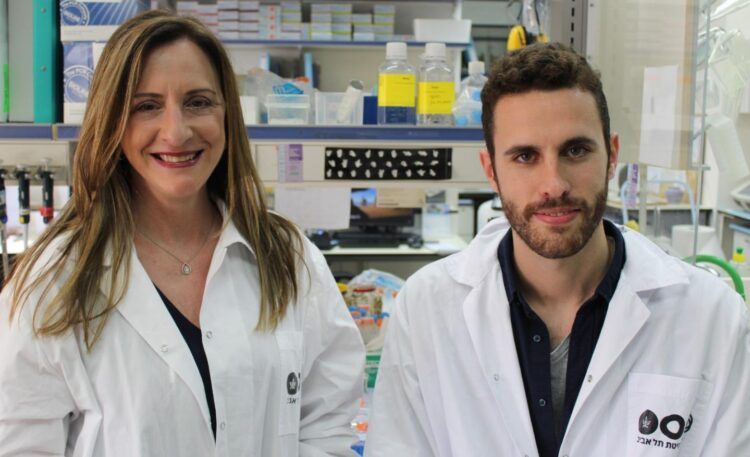Breakthrough may help in the treatment of children with hearing loss

Credit: Tel Aviv University
A new study from Tel Aviv University (TAU) presents an innovative treatment for deafness, based on the delivery of genetic material into the cells of the inner ear. The genetic material “replaces” the genetic defect and enables the cells to continue functioning normally.
The scientists were able to prevent the gradual deterioration of hearing in mice that had a genetic mutation for deafness. They maintain that this novel therapy could lead to a breakthrough in treating children born with various mutations that eventually cause deafness.
The study was led by Professor Karen Avraham of the Department of Human Molecular Genetics and Biochemistry at TAU’s Sackler Faculty of Medicine and Sagol School of Neuroscience. The paper was published in EMBO Molecular Medicine on December 22, 2020.
Deafness is the most common sensory disability worldwide. According to the World Health Organization, there are about half a billion people with hearing loss around the world today, and this figure is expected to double in the coming decades. One in every 200 children is born with a hearing impairment, and one in every 1,000 is born deaf. In about half of these cases, deafness is caused by a genetic mutation. There are currently about 100 different genes associated with hereditary deafness.
“In this study we focused on genetic deafness caused by a mutation in the gene SYNE4 – a rare deafness discovered by our lab several years ago in two Israeli families, and since then identified in Turkey and the UK as well,” Professor Avraham reports. “Children inheriting the defective gene from both parents are born with normal hearing, but they gradually lose their hearing during childhood. The mutation causes mislocalization of cell nuclei in the hair cells inside the cochlea of the inner ear, which serve as soundwave receptors and are essential for hearing. This defect leads to the degeneration and eventual death of hair cells.”
“We implemented an innovative gene therapy technology: we created a harmless synthetic virus and used it to deliver genetic material – a normal version of the gene that is defective in both the mouse model and the affected human families,” says Shahar Taiber, one of Professor Avraham’s students on the combined MD-PhD track. “We injected the virus into the inner ear of the mice, so that it entered the hair cells and released its genetic payload. By so doing, we repaired the defect in the hair cells and enabled them to mature and function normally.”
The treatment was administered soon after birth and the mice’s hearing was then monitored using both physiological and behavioral tests. “The findings are most promising,” says Professor Jeffrey Holt from Boston Children’s Hospital and Harvard Medical School, a collaborator on the study. “Treated mice developed normal hearing, with sensitivity almost identical to that of healthy mice who do not have the mutation.”
The scientists are now developing similar therapies for other mutations that cause deafness.
“This is an important study that shows that inner ear gene therapy can be effectively applied to a mouse model of SYNE4 deafness to rescue hearing,” says Prof. Wade Chien, MD, from the NIDCD/NIH Inner Ear Gene Therapy Program and Johns Hopkins School of Medicine, who was not involved in the study. “The magnitude of hearing recovery is impressive. This study is a part of a growing body of literature showing that gene therapy can be successfully applied to mouse models of hereditary hearing loss, and it illustrates the enormous potential of gene therapy as a treatment for deafness.”
###
Additional contributors included Prof. David Sprinzak from the School of Neurobiology, Biochemistry and Biophysics at TAU’s George S. Wise Faculty of Life Sciences. The study was supported by the US-Israel Binational Science Foundation, the National Institutes of Health, the European Research Council, and the Israel Precision Medicine Partnership Program of the Israel Science Foundation.
ABOUT TEL AVIV UNIVERSITY
Tel Aviv University (TAU) is a globally top-ranked university, a leading research institution, and a center of discovery. As Israel’s largest public institution of higher learning, TAU is home to 30,000 students, including 2,100 international students from over 100 countries. The University encompasses nine faculties, 35 schools, 400 labs, and has 17 affiliated hospitals in its network.
Media Contact
George Hunka
[email protected]
Original Source
https:/
Related Journal Article
http://dx.





